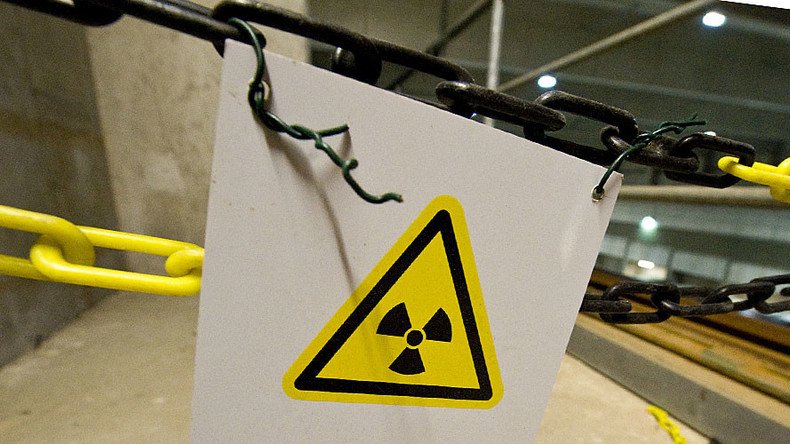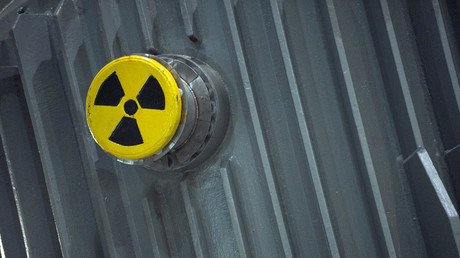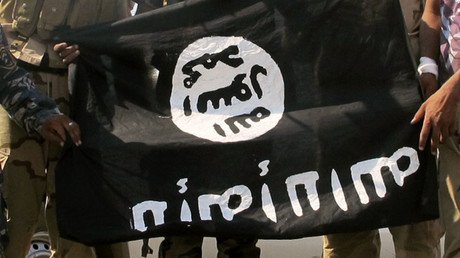Undercover govt group easily purchased 'dirty bomb' materials in Texas – report

Gathering the materials for a radioactive ‘dirty bomb’ isn't supposed to be simple in the US. In fact, it's supposed to include a stringent inspection process. But an undercover congressional group in Texas had a remarkably easy time completing the task.
With terrorism keeping the US government on edge, and both major presidential nominees making it a major campaign topic, one might assume that domestically acquiring the ingredients to poison an entire city for a year or more would be an impossible task.
After all, such ingredients require a license from the Nuclear Regulatory Commission (NRC) – a rule designed to keep such substances out of the hands of the wrong people. Applicants are expected to demonstrate they have a legitimate need for the ingredients, and that they understand the NRC's safety standards. They must pass an on-site inspection of their equipment and storage.
But a clandestine group from Government Accountability Office (GAO) – the investigative arm of Congress – had a much easier time getting their hands on ingredients to make a dirty bomb.
The group of fewer than 10 people – formed in 2014 in North Dakota, Michigan, and Texas – found that the Lone Star state made their job incredibly simple, the Center for Public Integrity reported.
The journey to the deadly ingredients began in Dallas, where the group incorporated a shell company they never intended to run. In order to have an address for the license application, they rented an office space in an industrial park. When asked to identify their safety officer on the form, they created a false name and attached a fake resume. And when they were asked what their intentions were, they said they needed the material to power an industrial gauge used in oil and gas exploration.
The application then went to Texas regulators who are permitted by the NRC to grant licenses without federal review. And although the regulators did, at the very least, fulfill the requirement of an on-site visit, they didn't seem too alarmed when an inspector arrived at the fake office to find it was empty and had no security precautions.
Getting around that little speed bump was incredibly easy for the group – they simply assured the inspector that once they had a license, they would be able to make the necessary security and safety improvements.
That was apparently all the inspector needed to hear, as he granted the group a license on the spot.
That piece of paper allowed the group to purchase the sealed radioactive material in an amount smaller than needed for any kind of ‘dirty bomb’. However, since no copies were needed to be kept in the government database, the group was able to make a digital copy of the license and change the permitted quantities, allowing it to place a new order with another seller for twice the original amount.
The scheme could have kept going indefinitely, according to David Trimble, director of National Resources and Environment at the GAO.
“It’s a back door,” he said. “We walked through it and we showed the door was still open. We could have kept doing it. If you can forge [a license] once, there’s no reason you can’t forge it again and again.”
According to the plot's mastermind, Ned Woodward, the scheme was incredibly easy to achieve.
“I wouldn’t call what we did very sophisticated,” he told the Center for Public Integrity. “There was nothing we had done to improve that site to make it appear as if it were an ongoing business.”
If the purchases had been completed, the group would have had enough radioactive material to create a dirty bomb – the same type of weapon that terrorists may seek, according to Trimble. For instance, it could have spread cancer-causing americium and beryllium dust for many blocks across a city, seriously threatening the health of anyone who breathed it.
And although it may seem that such a major oversight by the NRC is a rare case, it's not the first time such a thing has happened. In fact, this undercover assignment was designed to test whether authorities had since gotten their act together, after a similar slip-up back in 2007.
However, regulators failed the newest test, despite a 2007 vow by the NRC to take “immediate action to address the weaknesses we identified."
Since the most recent undercover assignment, two managers have been fired by Texas nuclear regulatory officials, and new training efforts have been implemented.
There are roughly 21,000 active licenses for the purchase of radioactive materials considered useful for a dirty bomb in the US, according to the Center for Public Integrity, which cited a 2013 Energy Department estimate. In some states, those licenses are only reviewed by regulators once in a decade.














